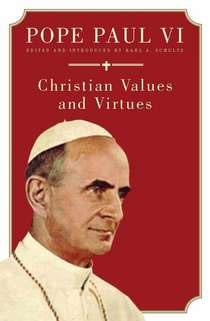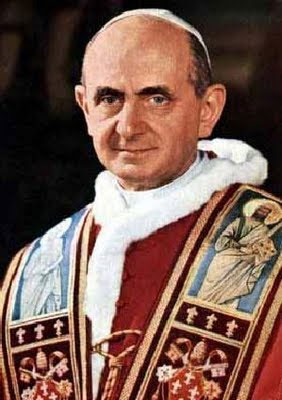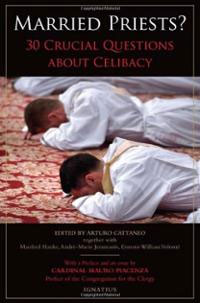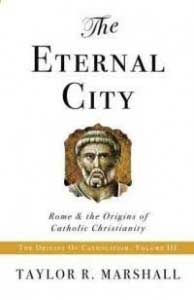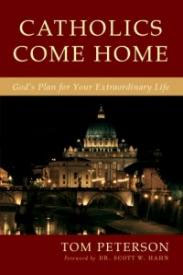Dr. Matthew Bunson discusses the life, times and work of  St. Ephrem of Syria
[powerpress]
For more on St. Ephrem and his teachings
- Nisibene Hymns  - Miscellaneous Hymns —
On the Nativity of Christ in the Flesh,
For the Feast of the Epiphany, and
On the Faith (“The Pearl”)Â Â -Â Homilies —
On Our Lord, On Admonition and Repentance,
and On the Sinful Woman
The figure of Ephrem is still absolutely timely for the life of the various Christian Churches. We discover him in the first place as a theologian who reflects poetically, on the basis of Holy Scripture, on the mystery of man’s redemption brought about by Christ, the Word of God incarnate. His is a theological reflection
expressed in images and symbols taken from nature, daily life and the Bible. Ephrem gives his poetry and liturgical hymns a didactic and catechetical character: they are theological hymns yet at the same time suitable for recitation or liturgical song. On the occasion of liturgical feasts, Ephrem made use of these hymns to spread Church doctrine. Time has proven them to be an extremely effective catechetical instrument for the Christian community.
Ephrem’s reflection on the theme of God the Creator is important: nothing in creation is isolated and the world, next to Sacred Scripture, is a Bible of God. By using his freedom wrongly, man upsets the cosmic order. The role of women was important to Ephrem. The way he spoke of them was always inspired with sensitivity and respect: the dwelling place of Jesus in Mary’s womb greatly increased women’s dignity. Ephrem held that just as there is no Redemption without Jesus, there is no Incarnation without Mary. The divine and human dimensions of the mystery of our redemption can already be found in Ephrem’s texts; poetically and with fundamentally scriptural images, he anticipated the theological background and in some way the very language of the great Christological definitions of the fifth-century Councils.
Ephrem, honoured by Christian tradition with the title “Harp of the Holy Spirit”, remained a deacon of the Church throughout his life. It was a crucial and emblematic decision: he was a deacon, a servant, in his liturgical ministry, and more radically, in his love for Christ, whose praises he sang in an unparalleled way, and also in his love for his brethren, whom he introduced with rare skill to the knowledge of divine Revelation.
For more visit Vatican.va
Dr. Matthew Bunson, Senior Fellow of the St. Paul Center for Biblical Theology, is one of the United States’ leading authorities on the papacy and the Church.
His books include: The Encyclopedia of Catholic History; The Encyclopedia of Saints; Papal Wisdom; All Shall Be Well; Encyclopedia of the Roman Empire; and The Angelic Doctor: The Life and World of St. Thomas Aquinas; The Pope Encyclopedia; We Have a Pope! Benedict XVI, the first Catholic biography of the Holy Father in the English language; the Encyclopedia of U.S. Catholic History; Pope Francis. Â His also the editor of OSV’s “The Catholic Answer” magazine.
Tags: Church, matthew bunson, Syria, work
This entry was posted on Monday, September 23rd, 2013 at 11:25 am
You can follow any responses to this entry through the RSS 2.0 feed.
Dr. Matthew Bunson discusses the life, times and work of  St. Athanasius of Alexandria
[powerpress]
For more on St. Athanasius of Alexandria and his teachings
AthanasiusÂ
-Â On the Incarnation of the Word
-Â Deposition of Arius
-Â Statement of Faith
-Â On Luke 10:22 (Matthew 11:27)
-Â Circular Letter
-Â Apologia Contra Arianos
-Â De Decretis
-Â De Sententia Dionysii
-Â Vita S. Antoni (Life of St. Anthony)
-Â Ad Episcopus Aegypti et Libyae
-Â Apologia ad Constantium
-Â Apologia de Fuga
-Â Historia Arianorum
-Â Four Discourses Against the Arians
-Â De Synodis
-Â Tomus ad Antiochenos
-Â Ad Afros Epistola Synodica
-Â Historia Acephala
-Â Letters
Athanasius was undoubtedly one of the most important and revered early Church Fathers. But this great Saint was above all the impassioned theologian of the Incarnation of the Logos, the Word of God who – as the Prologue of the fourth Gospel says – “became flesh and dwelt among us” (Jn 1: 14).
For this very reason Athanasius was also the most important and tenacious adversary of the Arian heresy, which at that time threatened faith in Christ, reduced to a creature “halfway” between God and man, according to a recurring tendency in history which we also see manifested today in various forms.
In all likelihood Athanasius was born in Alexandria, Egypt, in about the year 300 A.D. He received a good education before becoming a deacon and secretary to the Bishop of Alexandria, the great Egyptian metropolis. As a close collaborator of his Bishop, the young cleric took part with him in the Council of Nicaea, the first Ecumenical Council, convoked by the Emperor Constantine in May 325 A.D. to ensure Church unity. The Nicene Fathers were thus able to address various issues and primarily the serious problem that had arisen a few years earlier from the preaching of the Alexandrian priest, Arius.
With his theory, Arius threatened authentic faith in Christ, declaring that the Logos was not a true God but a created God, a creature “halfway” between God and man who hence remained for ever inaccessible to us. The Bishops gathered in Nicaea responded by developing and establishing the “Symbol of faith” [“Creed”] which, completed later at the First Council of Constantinople, has endured in the traditions of various Christian denominations and in the liturgy as the Niceno-Constantinopolitan Creed.
In this fundamental text – which expresses the faith of the undivided Church and which we also recite today, every Sunday, in the Eucharistic celebration – the Greek term homooúsiosis featured, in Latin consubstantialis: it means that the Son, the Logos, is “of the same substance” as the Father, he is God of God, he is his substance. Thus, the full divinity of the Son, which was denied by the Arians, was brought into the limelight.
For more visit Vatican.va
Dr. Matthew Bunson, Senior Fellow of the St. Paul Center for Biblical Theology, is one of the United States’ leading authorities on the papacy and the Church.
His books include: The Encyclopedia of Catholic History; The Encyclopedia of Saints; Papal Wisdom; All Shall Be Well; Encyclopedia of the Roman Empire; and The Angelic Doctor: The Life and World of St. Thomas Aquinas; The Pope Encyclopedia; We Have a Pope! Benedict XVI, the first Catholic biography of the Holy Father in the English language; the Encyclopedia of U.S. Catholic History; Pope Francis. Â His also the editor of OSV’s “The Catholic Answer” magazine.
Tags: Church, church fathers, faith, matthew bunson, work
This entry was posted on Friday, September 6th, 2013 at 11:15 am
You can follow any responses to this entry through the RSS 2.0 feed.
Bruce and I had a conversation with Karl Schultz, editor of  “Christian Values and Virtues”  comprised of   Pope Paul VI’s 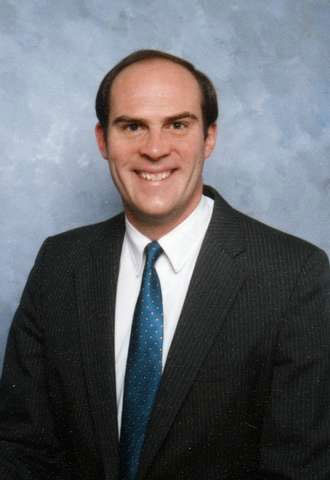 teachings on peace, hope, humility, faith, suffering, love, and joy as comprised through his public audiences and his writings. Karl also shares little known things about Pope Paul VI. This book is a must read for those interested in understanding the impact of Pope Paul VI’s papacy on the modern Catholic Church.
teachings on peace, hope, humility, faith, suffering, love, and joy as comprised through his public audiences and his writings. Karl also shares little known things about Pope Paul VI. This book is a must read for those interested in understanding the impact of Pope Paul VI’s papacy on the modern Catholic Church.
You can find the book here
Tags: catholic church, faith, joy, karl schultz, pope paul vi
This entry was posted on Tuesday, August 6th, 2013 at 9:53 am
You can follow any responses to this entry through the RSS 2.0 feed.
Here is part 2 of our discussion:
With a pastor’s heart and eagle-eye accuracy, the gifted Al Kresta addresses “Dangers to the Faith: Recognizing Catholicism’s 21st Century 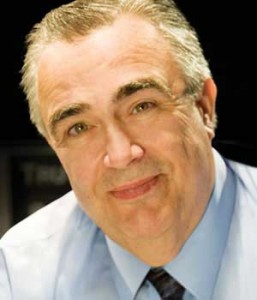 Opponents” in his newest book published by Our Sunday Visitor.    The secular world has presented many twisted versions of the “Truth” over the years: from New Age thought to Isalm, Scientism to Consumerism, Oprah and Shirley to Bart Erhman and Carl Sagan. Al Kresta challenges the “opponents” of faith with Christ-like love and wisdom. In the process, he teaches us all how to evangelize as a true disciple of Christ. A must have work for all those who may have a seeking heart and a desire to grow in their faith and to share it with family, friends and all they may encounter. One of the best books offered in this Year of Faith….a modern classic that should be in every Catholic home!
Opponents” in his newest book published by Our Sunday Visitor.    The secular world has presented many twisted versions of the “Truth” over the years: from New Age thought to Isalm, Scientism to Consumerism, Oprah and Shirley to Bart Erhman and Carl Sagan. Al Kresta challenges the “opponents” of faith with Christ-like love and wisdom. In the process, he teaches us all how to evangelize as a true disciple of Christ. A must have work for all those who may have a seeking heart and a desire to grow in their faith and to share it with family, friends and all they may encounter. One of the best books offered in this Year of Faith….a modern classic that should be in every Catholic home!
Here is part 2 of our discussion:
[powerpress]
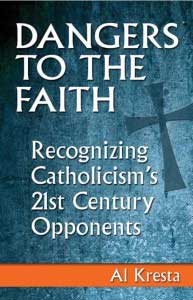 You can find the book here
You can find the book here
Be sure to listen to “Kresta in the Afternoon” on the Ave Maria Radio Network
From the description:
Dangers to the Faith: Recognizing Catholicism’s 21st Century Opponents is the perfect springboard for discussing the new world in which the Catholic Church exists today. Learn how to better carry out the missionary mandate of the Church. The question isn’t whether you will be a witness to Christ, but whether you will be a faithful witness.
Tags: al kresta, Bart Erhman, Carl Sagan.� Al Kresta
This entry was posted on Tuesday, July 23rd, 2013 at 8:44 am
You can follow any responses to this entry through the RSS 2.0 feed.
“Americanization ” is a very important concept to comprehend when trying to understand the state of the Roman Catholic Church in America. In “American 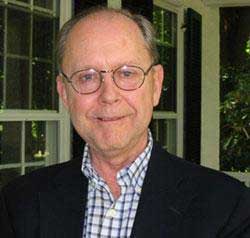 Church: The Remarkable Rise, Meteoric Fall, and Uncertain Future of Catholicism in America” offers that many of the benefits of cultural assimilation exprienced by Catholic immigrants to the U.S.,  around the turn of the last century, were good.  However, the secular culture has threatened the “Catholic identity” of millions of faithful and of their institutions, such as schools, universities, and hospitals.
Church: The Remarkable Rise, Meteoric Fall, and Uncertain Future of Catholicism in America” offers that many of the benefits of cultural assimilation exprienced by Catholic immigrants to the U.S.,  around the turn of the last century, were good.  However, the secular culture has threatened the “Catholic identity” of millions of faithful and of their institutions, such as schools, universities, and hospitals.
Rich in in history, which points potentially to the future, Russell Shaw helps us to see the disturbing aspects of the Church in America today, while offering hopeful outcomes for the future. Â A very important book, indeed!
[powerpress]
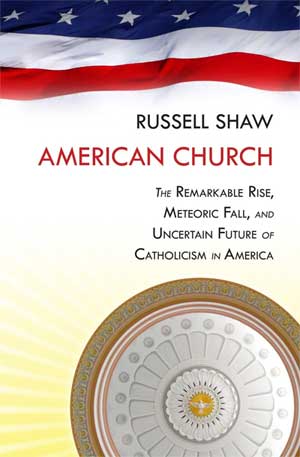 You can find the book here
You can find the book here
“Russell Shaw is one of the best informed and most articulate observers of the American Catholic experience; a writer of elegant clarity, fairness and impeccable research. If you want to understand the Church in the United States and the challenges she now faces, American Church should be on the short list of books you need to read.”
+Charles J. Chaput, O.F.M. Cap., Archbishop of Philadelphia
“The new bull-in-the-china-shop of U.S. Catholic history, Russell Shaw upends pedestals, reimagines story-lines, and invites all of us to think again about the roots of the severe challenges — and great opportunities — facing the Church in the United States in the first decades of the third millennium.” —-George Weigel, author of Evangelical Catholicism: Deep Reform in the 21st-Century Church
Tags: catholic, catholic podcast, catholic prayer
This entry was posted on Sunday, May 12th, 2013 at 5:51 pm
You can follow any responses to this entry through the RSS 2.0 feed.
“Married Priests? 30 Crucial Questions about Celibacy” is the go to book when seeking answers to just about everything related to the  Church’s teaching and exprience in regards to priestly celibacy.  With Fr. Joseph Fessio S.J., 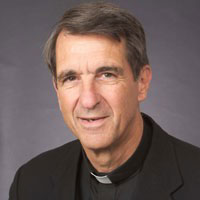 editor and founder of Ignatius Press the publisher of this work, we discuss several of those questions.  Why do Catholic priests not marry? How can celibacy possibly be so important to the Church, if Jesus did not even require it of his apostles?  How does this discipline play into the discernment for this particular vocation?  We also discuss the vocation of Marriage, and the state of Church in America from Fr. Fessio’s prespective.  It is always a joy to have the opportunity to talk with Fr. Fessio.
editor and founder of Ignatius Press the publisher of this work, we discuss several of those questions. Â Why do Catholic priests not marry? How can celibacy possibly be so important to the Church, if Jesus did not even require it of his apostles? Â How does this discipline play into the discernment for this particular vocation? Â We also discuss the vocation of Marriage, and the state of Church in America from Fr. Fessio’s prespective. Â It is always a joy to have the opportunity to talk with Fr. Fessio.
[powerpress]
You can find the book here
From the book description:
In recent years the arguments in favor of openness to married priests seem to be multiplying. Some object that celibacy is not a dogma but only a discipline that originated in the Middle Ages; that it is contrary to nature and hence harmful for a man’s psycho-physical equilibrium and the maturation of the human personality. And then, if priests could marry, there would be an increase in vocations.
In this book, seventeen various experts make contributions, responding to these and other burning objections, allowing the reader to discover the value that celibacy has today in the lives of thousands of priests and seminarians.
Among the key topics this book discusses are: History of Priestly Celibacy, What Theology Says on the Celibacy, Emotions and Sexuality, Discerning and Fostering a Vocation, Celibacy in the Life of a Priest, Celibacy and Inculturation, Papal teachings on Celibacy from Pius XI to Benedict XVI.
Tags: joseph fessio, Joseph Fessio S.J., married priests, priestly celibacy
This entry was posted on Tuesday, April 23rd, 2013 at 1:08 am
You can follow any responses to this entry through the RSS 2.0 feed.
So good to talk once again with Dr. Taylor Marshall.  This time he offers us his insights on the newly elected Pope Francis.  We discuss the surprise of his selection and some of 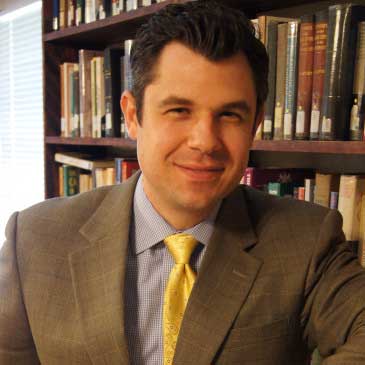 the anxiety some people are having about this “unknown” cardinal from Argentina…will he continue the legacy of Bl. John Paul and Pope Benedict or will he journey on another path?  Dr. Marshall explores several issues that conservatives, traditionalists, as will as liberals and progressives, may have with our Holy Father;  he expresses the importance of trusting the Holy Spirit and allowing the Father in Heaven to reveal His plan for us…receive the peace of Christ Jesus.  Dr. Marshall explores the love Pope Francis has for the Blessed Mother and why it was significant that one of  the Holy Father’s first stops was to the crypt of St. Pius V the day after his election.  He then shares with us the devotion to Mary, Untier of Knots, promulgated by Pope Francis while he served as a cardinal.  Then Dr. Marshall talks about what can be learned by the “New Evangelization”  by looking at the “Old Evangelization”.  Great insight once again by the good doctor, Taylor Marshall.
the anxiety some people are having about this “unknown” cardinal from Argentina…will he continue the legacy of Bl. John Paul and Pope Benedict or will he journey on another path?  Dr. Marshall explores several issues that conservatives, traditionalists, as will as liberals and progressives, may have with our Holy Father;  he expresses the importance of trusting the Holy Spirit and allowing the Father in Heaven to reveal His plan for us…receive the peace of Christ Jesus.  Dr. Marshall explores the love Pope Francis has for the Blessed Mother and why it was significant that one of  the Holy Father’s first stops was to the crypt of St. Pius V the day after his election.  He then shares with us the devotion to Mary, Untier of Knots, promulgated by Pope Francis while he served as a cardinal.  Then Dr. Marshall talks about what can be learned by the “New Evangelization”  by looking at the “Old Evangelization”.  Great insight once again by the good doctor, Taylor Marshall.
[powerpress]
You can find the book here
Be sure to visit Dr. Marshall’s excellent Catholic Blog “Canterbury Tales”
Tags: cardinal, holy father, Pope Francis, Taylor Marshall
This entry was posted on Sunday, April 21st, 2013 at 12:55 pm
You can follow any responses to this entry through the RSS 2.0 feed.
What a glorious opportunity to discuss “Truth” with the one and only Dr. Peter Kreeft.  I have to admit, one must be on their toes when discussing any topic with the good 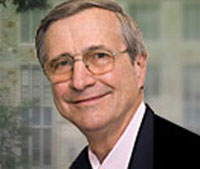 doctor, he is one of the great intellects and authors of our time, period.  He is always patient, kind and just downright fascinating in this conversation;  Dr. Kreeft  engages the imagination and guides us deeper into the reality of Divine Revelation.  “Jacob’s Ladder: 10 Steps to Truth” is an absolutely splendid voyage to undertake;  put on your thinking caps, dive in to the ocean of your heart, and be prepared to be awed and delighted.  A must have book for anyone who is seeking Truth.
doctor, he is one of the great intellects and authors of our time, period.  He is always patient, kind and just downright fascinating in this conversation;  Dr. Kreeft  engages the imagination and guides us deeper into the reality of Divine Revelation.  “Jacob’s Ladder: 10 Steps to Truth” is an absolutely splendid voyage to undertake;  put on your thinking caps, dive in to the ocean of your heart, and be prepared to be awed and delighted.  A must have book for anyone who is seeking Truth.
[powerpress]
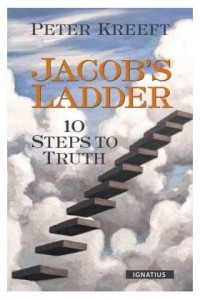 You can find the book here
You can find the book here
From the book description:
Among the topics, or “steps”, that Kreeft’s characters delve into include:
Do you have the passion to know?
Does truth exist?
What is the meaning of life?
What is love, and why is it so important for our lives?
If there is a God, what proof is there for his existence?
Has God revealed himself to us in a personal way?
This entry was posted on Wednesday, April 17th, 2013 at 10:50 am
You can follow any responses to this entry through the RSS 2.0 feed.
The New Evangelization, during this Year of Faith, has experienced an incredible moment with the Papal Conclave convened to elect the 265th successor to St. 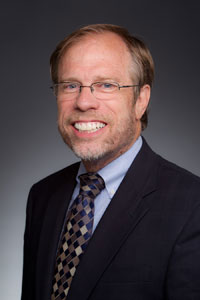 Peter!  We had a chance to talk with someone on the ground covering this historic moment first hand…Gregory Erlandson.  As Publisher and President of the Our Sunday Visitor Publishing Division, Greg brings incredible insight on what is occurring at this historic moment having spent years in Rome reporting on the activities of our universal Church.  In our conversation, we discuss the unprecedented numbers of  media outlets from around the world covering the event and what that might mean for the New Evangelization.  Is there an “American Moment” occurring at this conclave as some suggest, and if so, what could this unexpected influence have on the Papal Election and the Church around the world?  Gregory Erlandson, besides being one of the wisest (as well as nicest) men I know,  is truly a balanced seeker of truth and a master communicator of the beauty offered by our Catholic faith…no hype here, but always with an encouraging call to deeper prayer and trust.
Peter!  We had a chance to talk with someone on the ground covering this historic moment first hand…Gregory Erlandson.  As Publisher and President of the Our Sunday Visitor Publishing Division, Greg brings incredible insight on what is occurring at this historic moment having spent years in Rome reporting on the activities of our universal Church.  In our conversation, we discuss the unprecedented numbers of  media outlets from around the world covering the event and what that might mean for the New Evangelization.  Is there an “American Moment” occurring at this conclave as some suggest, and if so, what could this unexpected influence have on the Papal Election and the Church around the world?  Gregory Erlandson, besides being one of the wisest (as well as nicest) men I know,  is truly a balanced seeker of truth and a master communicator of the beauty offered by our Catholic faith…no hype here, but always with an encouraging call to deeper prayer and trust.
[powerpress]
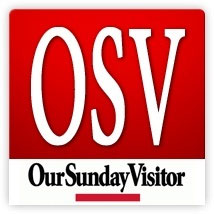 From Greg’s blog posting at the OSV Blog:
From Greg’s blog posting at the OSV Blog:
So, what are the chances that we will have an American pope? If the forecasts are correct (a big if), and if the received wisdom is at all wise, the American options become more likely if the first ballots do not signal a clear front-runner – Cardinals Angelo Scola, Odilo Scherer and Marc Ouellet perhaps – capable of winning two-thirds of the votes.
ÂWhat dramas play out in the Sistine Chapel and in the conversations taking place back in the cardinals’ “hotel” we may not find out for months, but Vatican observers, for perhaps the first time ever, are not discounting the Americans, and that in itself is a big deal.
Tags: American Moment, Church, Gregory Erlandson, osv, sistine chapel
This entry was posted on Tuesday, March 12th, 2013 at 6:56 pm
You can follow any responses to this entry through the RSS 2.0 feed.
Thomas Craughwell in,  “Popes Who Resigned: Benedict Xvi and 13 Other Popes Who Retired (or Were Deposed)“, has once again proven why his writing is so fascinating and enjoyable. He never shys away from the uncomfortable fact. He presents the information with the peace and good humor which comes from the hindsight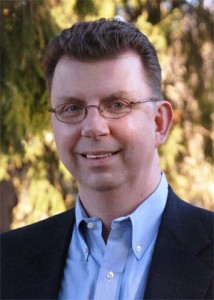 afforded by history and a knowledge of a God who eventually brings all things into in order despite his earthly children’s  best efforts to mess things up. We can learn much from a particular moment or action of human behavior in the curse of human history, and with Thomas Craughwell’s keen eye not much is missed. In this particular case, we can rest assured that the Barque of St. Peter sails the seas of human history helmed by the Holy Spirit more than by the hands of man, otherwise it would of crashed on the seashore of time long ago.
afforded by history and a knowledge of a God who eventually brings all things into in order despite his earthly children’s  best efforts to mess things up. We can learn much from a particular moment or action of human behavior in the curse of human history, and with Thomas Craughwell’s keen eye not much is missed. In this particular case, we can rest assured that the Barque of St. Peter sails the seas of human history helmed by the Holy Spirit more than by the hands of man, otherwise it would of crashed on the seashore of time long ago.
[powerpress]
The stories contained here are short and to the point, each representing a fascinating period in Church history. I appreciated his insights on the unique circumstances and personalities of Bl. John Paul Ii and Pope Benedict XVI, and why each chose the course they took in regards to their decisions to either remain or leave their role as Supreme Pontiff.
I am a big fan of Thomas Craughwell’s work…I wasn’t disappointed.
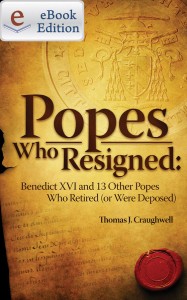 You can obtain the book here
You can obtain the book here
From the book description:
On February 11, 2013, Pope Benedict XVI shocked Catholics and the world by announcing that he would resign from the papacy. It was the first papal resignation in 600 years, and it has caused Catholics the world over to scramble for answers. Now, in Popes Who Resigned, Thomas J. Craughwell answers those burning questions, including:
– Why did Benedict XVI resign… and why didn’t John Paul II?
– What does the Catholic Church teach about papal resignation?
– Who were the other popes that resigned, and why?
– And much more.
In these tumultuous times, Craughwell points even now to the rock that is the Catholic Church, digging into Canon law and Church history for answers. Popes Who Resigned is a must read for Catholics and non-Catholics alike who are trying to make sense of Benedict XVI’s resignation and what it means for the papacy, the Church, and the world.
Tags: catholic church, Church, holy spirit, Thomas Craughwell
This entry was posted on Thursday, February 28th, 2013 at 11:55 am
You can follow any responses to this entry through the RSS 2.0 feed.
What a delight to talk with Tom Peterson!  With a joyful enthusiasm fueled by his rich prayer life, Tom has become a compelling leader in the New Evangelization, especially in the United 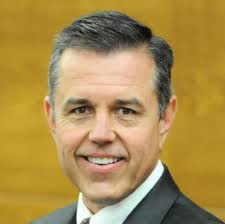 States.  With his book ,”Catholics Come Home: God’s Extraordinary Plan for Your Life” , he expands his list of significant contributions to that effort  which have encouraged countless souls to embrace the gift of the Catholic faith.  Not only does he share his own powerful witness, but he offers practical catechesis to foster on-going conversion in the heart of the seeking soul and encouragement to all to share the Good News.  Excellent!
States.  With his book ,”Catholics Come Home: God’s Extraordinary Plan for Your Life” , he expands his list of significant contributions to that effort  which have encouraged countless souls to embrace the gift of the Catholic faith.  Not only does he share his own powerful witness, but he offers practical catechesis to foster on-going conversion in the heart of the seeking soul and encouragement to all to share the Good News.  Excellent!
[powerpress]
You can find the book here
Also check out Tom’s work at virtuemedia.org and CatholicComeHome.org
“We are in the midst of a New Evangelization; and I believe this book is a signal moment in its success. It is also a sign that will lead many folks back home to the family of God, which is Catholic Church.â€
—Dr. Scott W. Hahn, author of The Lamb’s Supper and Signs of Life
Â
“Catholics Come Home is a powerful sacramental, a means of grace. It is a willing, waiting taxi to take us home, to our home away from Home, the Catholic Church, the Mystical Body of Christ.â€
—Dr. Peter Kreeft, author of Handbook of Christian Apologetics
Tags: catholic church, conversion, Good News, new evangelization, United States
This entry was posted on Monday, February 25th, 2013 at 10:06 am
You can follow any responses to this entry through the RSS 2.0 feed.
I’ve had the blessing of reading many wonderful books, but this one in particular, 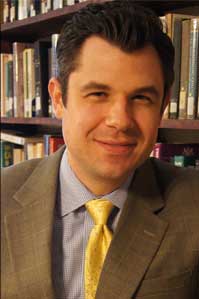 has become a fast favorite!  Dr. Taylor Marshall has penned one of those works that you want to take the time to completely absorb, but also want to read quickly because it such a great story.  What a joy.  Filled with unexpected connections, rich in fascinating  details, and abundant with “I-knew-that-but-I-didn’t-know-I-knew-that” moments, Dr. Marshall’s gifted teaching and storytelling engages the mind and the heart of his reader.  He pours fuel on the fire of our ongoing conversion. This is a great gift to give to yourself and to someone you know who desires a fuller appreciation of our Roman Catholic faith. A must have for your Catholic library. (P.S. Scripture devotees and Patristic fans are going to LOVE this book)
has become a fast favorite!  Dr. Taylor Marshall has penned one of those works that you want to take the time to completely absorb, but also want to read quickly because it such a great story.  What a joy.  Filled with unexpected connections, rich in fascinating  details, and abundant with “I-knew-that-but-I-didn’t-know-I-knew-that” moments, Dr. Marshall’s gifted teaching and storytelling engages the mind and the heart of his reader.  He pours fuel on the fire of our ongoing conversion. This is a great gift to give to yourself and to someone you know who desires a fuller appreciation of our Roman Catholic faith. A must have for your Catholic library. (P.S. Scripture devotees and Patristic fans are going to LOVE this book)
[powerpress]
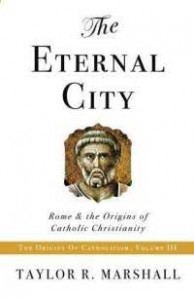 You can find the book here
You can find the book here
Also check out Dr. Marshall’s “Canterbury Tales” website
From the book description:
Read this book if you have ever wondered why the Catholic Church specifically claims to be Roman? It would seem that the Church of Jesus Christ would be centered in Jerusalem, the capital of the Jews, since Christ died and rose again in Jerusalem. Catholic theologian Taylor Marshall, Ph.D. provides a layman’s account of how Christ chose the Rome as an instrument of redemption for the nations. Beginning with the Old Testament prophets, Dr. Marshall explains how the Messiah would come and assume reign over the nations through the Roman Empire. This book provides an exciting and popular account establishing Rome as ‘the Eternal City’ of Christ the King.
Tags: fathers of the church, old testament, papacy, redemption, rome, Taylor Marshall
This entry was posted on Friday, February 15th, 2013 at 7:57 am
You can follow any responses to this entry through the RSS 2.0 feed.
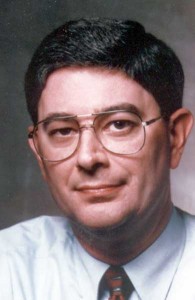 At stunning moment in the recent history of the Catholic Church, the resignation of Pope Benedict XVI as Supreme Pontiff of the Roman Catholic Church effective February 28, we had the opportunity to George Weigel before his departure for Rome to be, once again, a witness to history.  In “Evangelical Catholicism:  Deep Reform in the 21st-Century Church” he writes of this particular moment in the life of the Catholic Church.  Our conversation centers on the Papacy and its future.  I cannot encourage listeners more highly to pick up a copy of this book; it is extraordinarily compelling and filled with hopeful certainty concerning the future course of this great “barque of Peter”.  Don’t miss!!!
At stunning moment in the recent history of the Catholic Church, the resignation of Pope Benedict XVI as Supreme Pontiff of the Roman Catholic Church effective February 28, we had the opportunity to George Weigel before his departure for Rome to be, once again, a witness to history.  In “Evangelical Catholicism:  Deep Reform in the 21st-Century Church” he writes of this particular moment in the life of the Catholic Church.  Our conversation centers on the Papacy and its future.  I cannot encourage listeners more highly to pick up a copy of this book; it is extraordinarily compelling and filled with hopeful certainty concerning the future course of this great “barque of Peter”.  Don’t miss!!!
[powerpress]
You can find the book here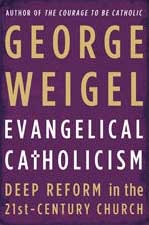
Timothy Cardinal Dolan, Archbishop of New York
“This sparkling read puts all the old Church-labels—liberal vs. conservative, progressive vs. traditionalist, pre- vs. post-Vatican II—in the shredder. Now there is only one valid adjective for all of us: evangelical! Simply put, this means we take our baptismal promises with the utmost seriousness. Like the Samaritan woman, we’ve met a man—Jesus—who has changed our lives.â€
Charles J. Chaput, O.F.M. Cap., Archbishop of Philadelphia
“George Weigel has been the leading diarist of authentic Catholic renewal—its progress, detours, personalities, and hopes—for 30 years. In Evangelical Catholicism he turns his extraordinary skills to the needs of the Church in the coming decades, calling us back to the missionary vocation we received at baptism and offering us a road map to faithful, vigorous Church reform. Rich in its vision, engaging in style, on target in its counsel and invaluable for anyone trying to understand the Church and her challenges in the 21st Century, this book should not be missed.â€
Mary Ann Glendon, author of The Forum and the Tower: How Scholars and Politicians have Imagined the World, from Plato to Eleanor Roosevelt
“This remarkable book offers nothing less than a map and compass for men and women determined to take up the challenge of living the Catholic faith in its fullness under 21st-century conditions. With its bold call for ‘deep reform’ in every single corner of the Church, Evangelical Catholicism is sure to provoke lively discussion. The book’s proposals for true renewal are presented with the clarity and verve that have made George Weigel a peerless advocate of the courage to be Catholic.â€
Tags: catholic, catholic podcast, catholic prayer
This entry was posted on Wednesday, February 13th, 2013 at 12:44 pm
You can follow any responses to this entry through the RSS 2.0 feed.
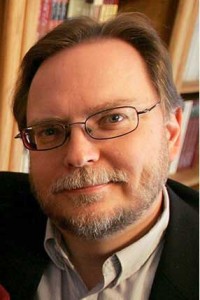 It’s great to be joined once again by Mark Brumley, this time to discuss  “Knowing God: God and the Human Condition” (previously titled God and the Human Mind) authored by the great Catholic writer, teacher, and publisher Frank Sheed.  Written in 1966 during the time of the Second Vatican Council, Sheed  addresses the most challenging questions the human mind can pose about God, without presenting answers in dry academic way.  Instead, because of his gifted writing style, he engages the reader with a desire to discover “mystery” in all its forms.
It’s great to be joined once again by Mark Brumley, this time to discuss  “Knowing God: God and the Human Condition” (previously titled God and the Human Mind) authored by the great Catholic writer, teacher, and publisher Frank Sheed.  Written in 1966 during the time of the Second Vatican Council, Sheed  addresses the most challenging questions the human mind can pose about God, without presenting answers in dry academic way.  Instead, because of his gifted writing style, he engages the reader with a desire to discover “mystery” in all its forms.
[powerpress]
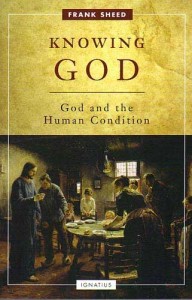 You can find the book here
You can find the book here
“This book is vintage Sheed: clear, commonsensical, and convincing. This is the Sheed of the two masterpieces of apologetics Theology and Sanity and Society and Sanity. But this is also a new Sheed: older and wiser, more practical and human–the post-Vatican II Sheed. I mean this in all the good senses, the John Paul II senses: he is sensitive to the dangers of “the good old days”: verbalism, “dead orthodoxy,” rationalism, deism, what Sheed calls “theometry” instead of theology: an abstract, formal theological geometry that only wants to define terms and win debating points. Instead, this book is a kind of theological midrash, a deepening, a spelunking in the caves of the deepest mysteries with the clear light of honest words–honest with heart as well as head. It unites dogmatic theology with lived religion. It is precisely the breath of fresh air that Pope John XXIII opened the windows for, and in terms the layman can clearly grasp. —– Peter Kreeft, Author, Because God is Real
Tags: catholic, catholic podcast, catholic prayer
This entry was posted on Tuesday, February 12th, 2013 at 2:48 am
You can follow any responses to this entry through the RSS 2.0 feed.
He just gets better and better.  Of course, I’m talking about Mike Aquilina and his joy and enthusiasm for the Catholic Church 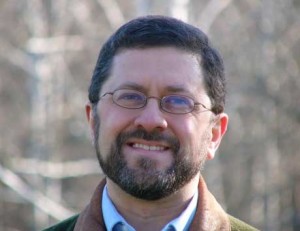 abounds in “Yours is the Church:  How Catholicism Shapes Our World“.  Mike is so good at getting to the nuggets contained in history and reminding us all of the significant contributions made by the Church which have changed our world for the better.  Whether it is the moral leadership it has offered which has been the rudder steadying our course, or the beauty of the arts which fashion it’s sails, the barque of the Church sails the seas of time on a course to the New Jerusalem.  Putting it all into a wonderful historic perspective, Mike Aquilina offers us a “must have” book that should be in every Catholic home and given to anyone joining this beautiful Church of ours.  Thanks Mike!
abounds in “Yours is the Church:  How Catholicism Shapes Our World“.  Mike is so good at getting to the nuggets contained in history and reminding us all of the significant contributions made by the Church which have changed our world for the better.  Whether it is the moral leadership it has offered which has been the rudder steadying our course, or the beauty of the arts which fashion it’s sails, the barque of the Church sails the seas of time on a course to the New Jerusalem.  Putting it all into a wonderful historic perspective, Mike Aquilina offers us a “must have” book that should be in every Catholic home and given to anyone joining this beautiful Church of ours.  Thanks Mike!
[powerpress]
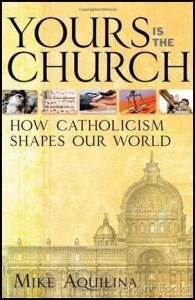 Your can find the book here
Your can find the book here
“Christianity has radically changed the world for the better.  In a book that’s both thoughtful and entertaining .  Mike Aquilina shows how the Gospel really has been the good news in the most practical ways possible.  Even the atheist ought  to thank…whoever he thanks….for the rise of Christianity.” — David Mills, executive editor of First Things
Tags: catholic church, Church, mike aquilina, New Jerusalem
This entry was posted on Monday, February 4th, 2013 at 1:22 pm
You can follow any responses to this entry through the RSS 2.0 feed.

